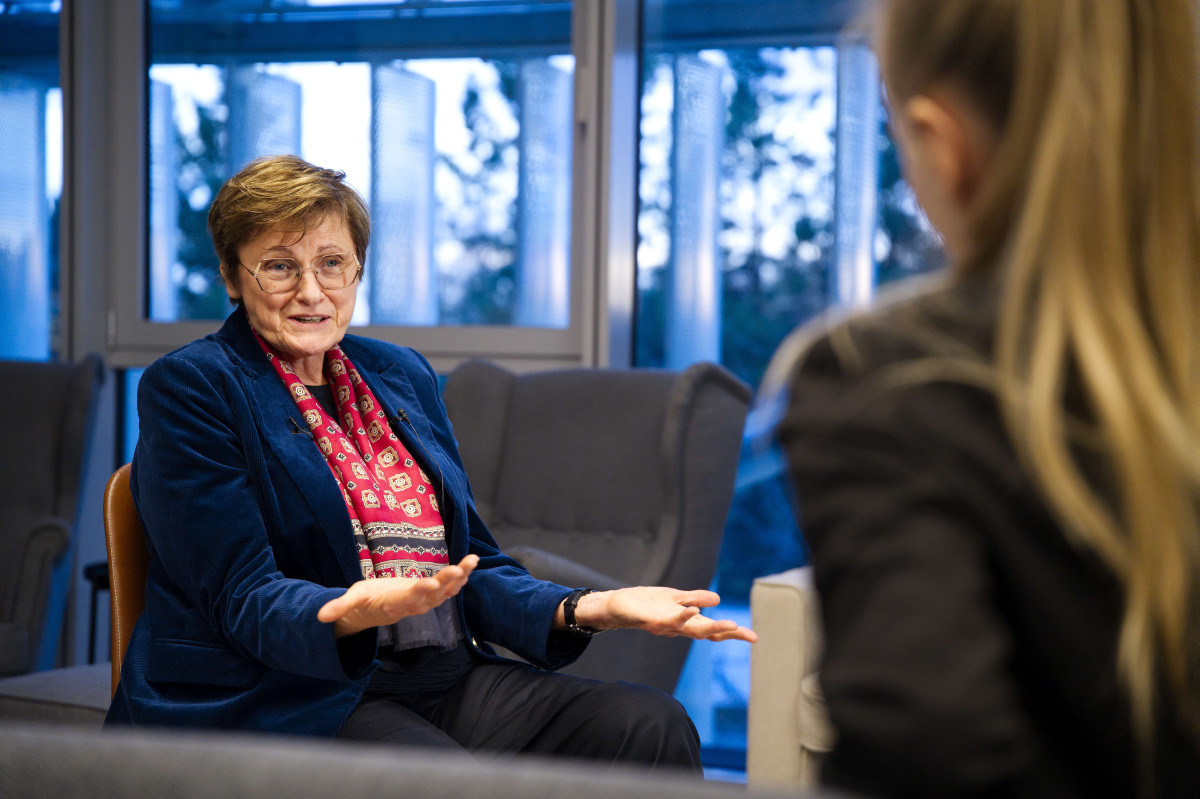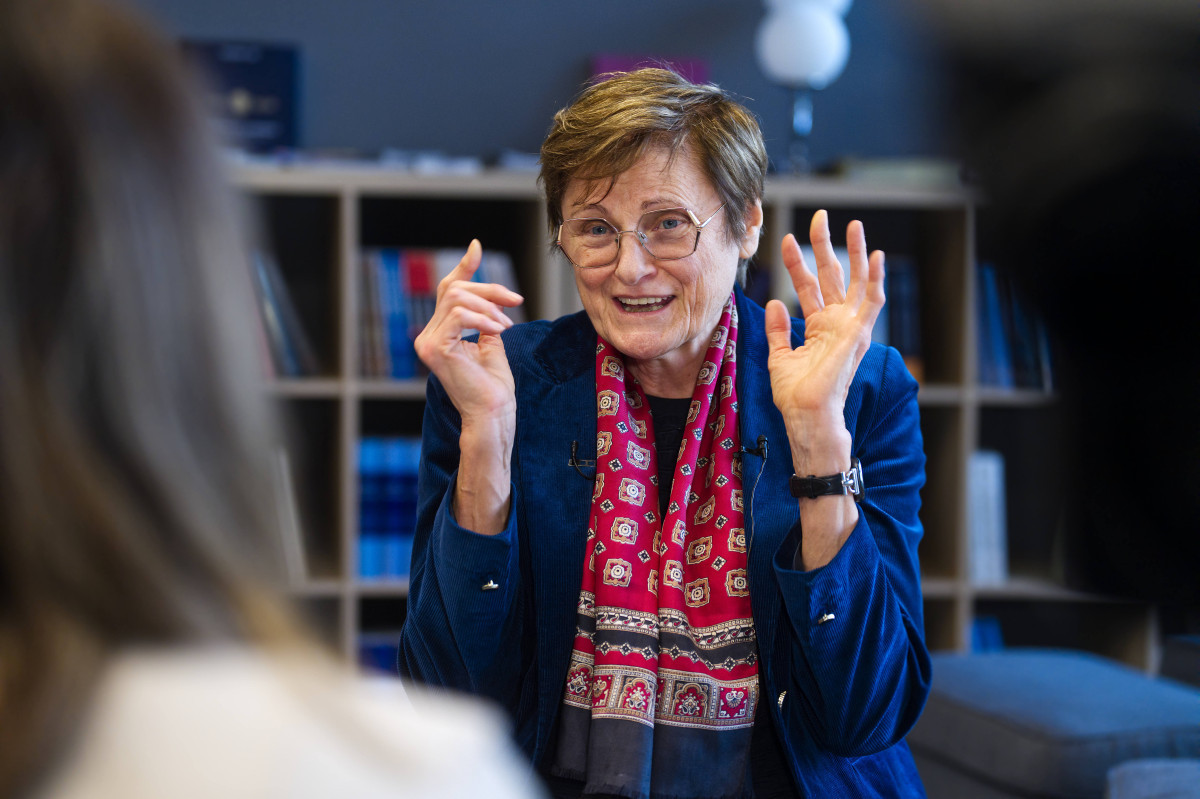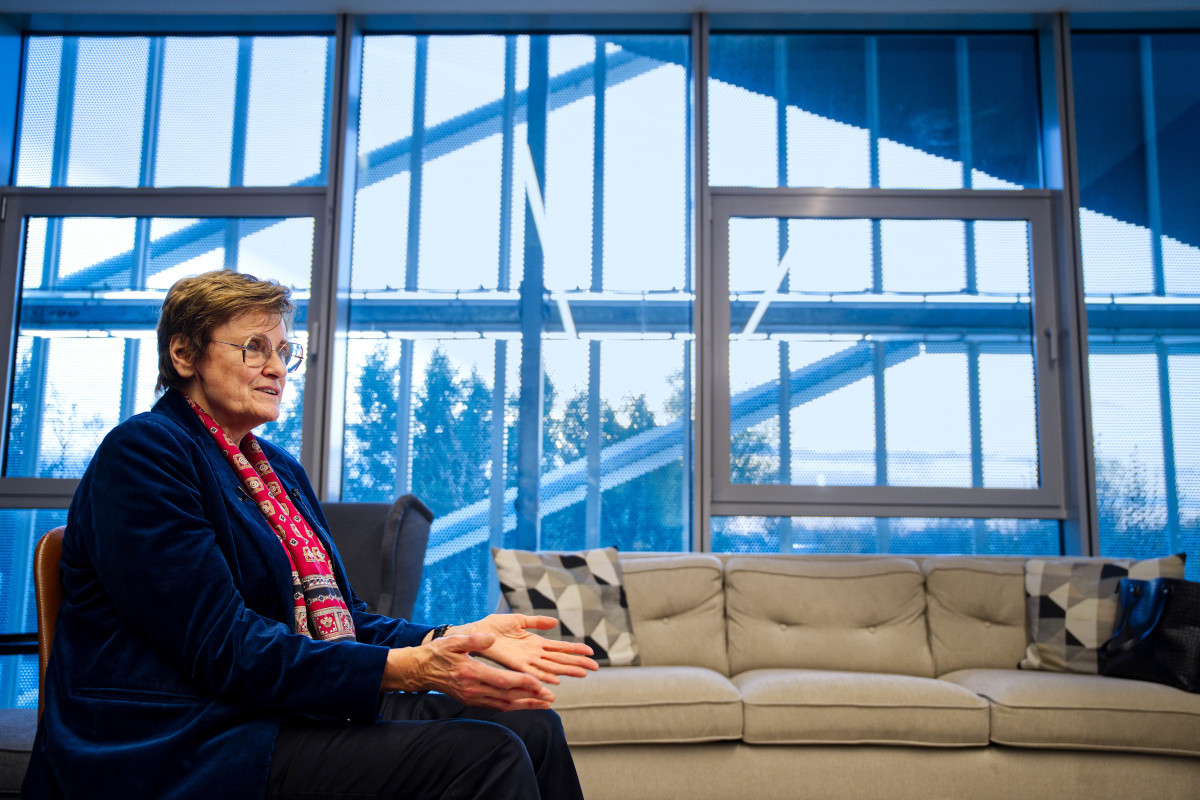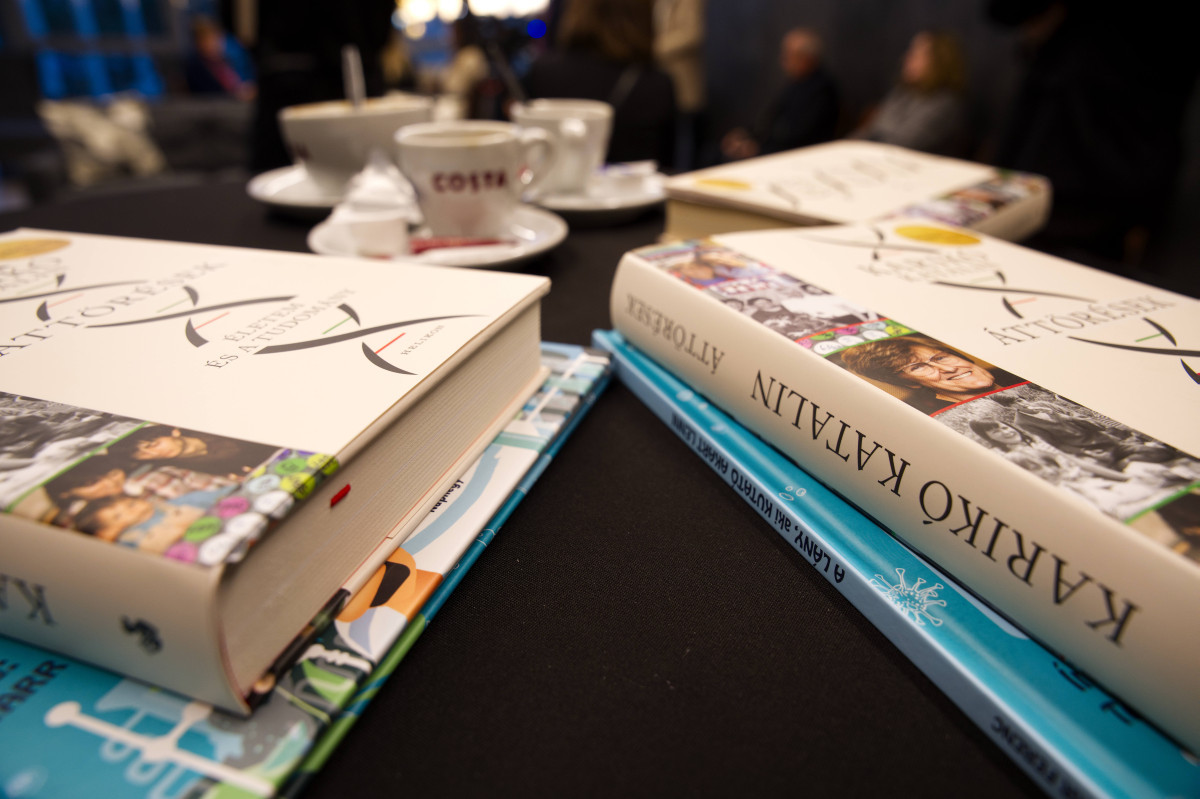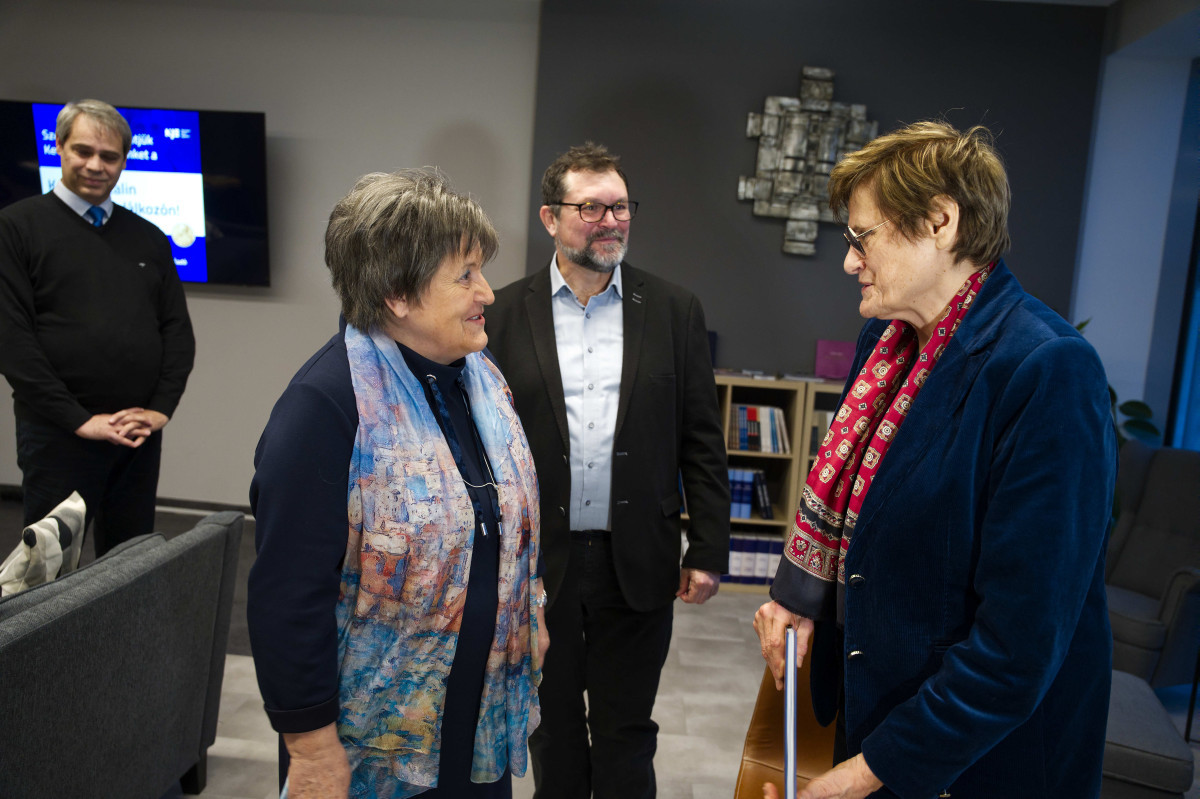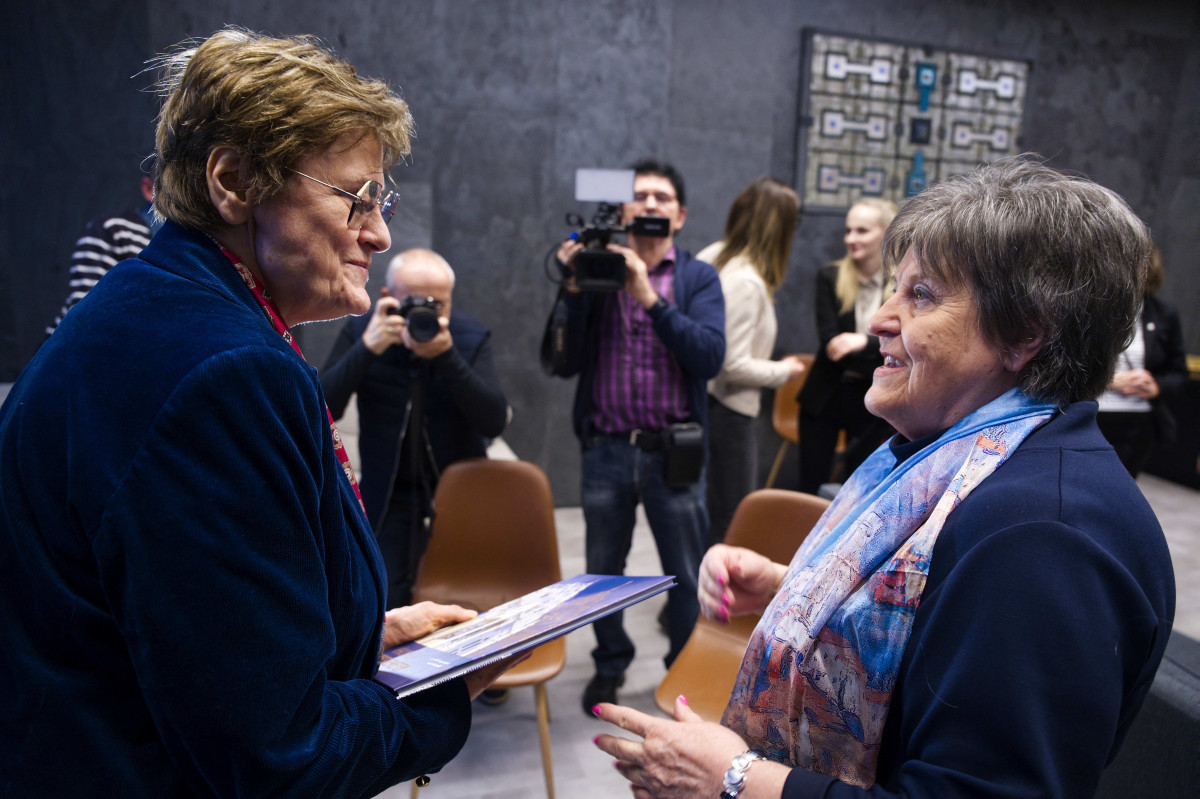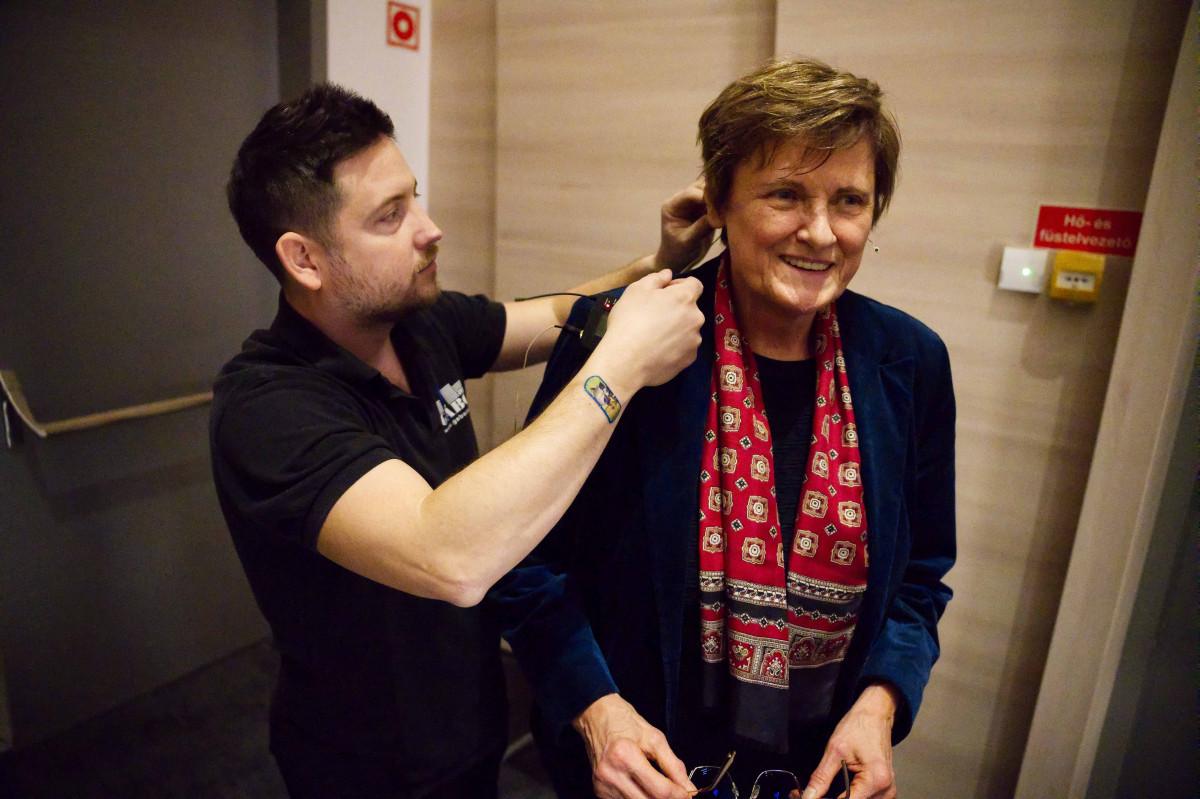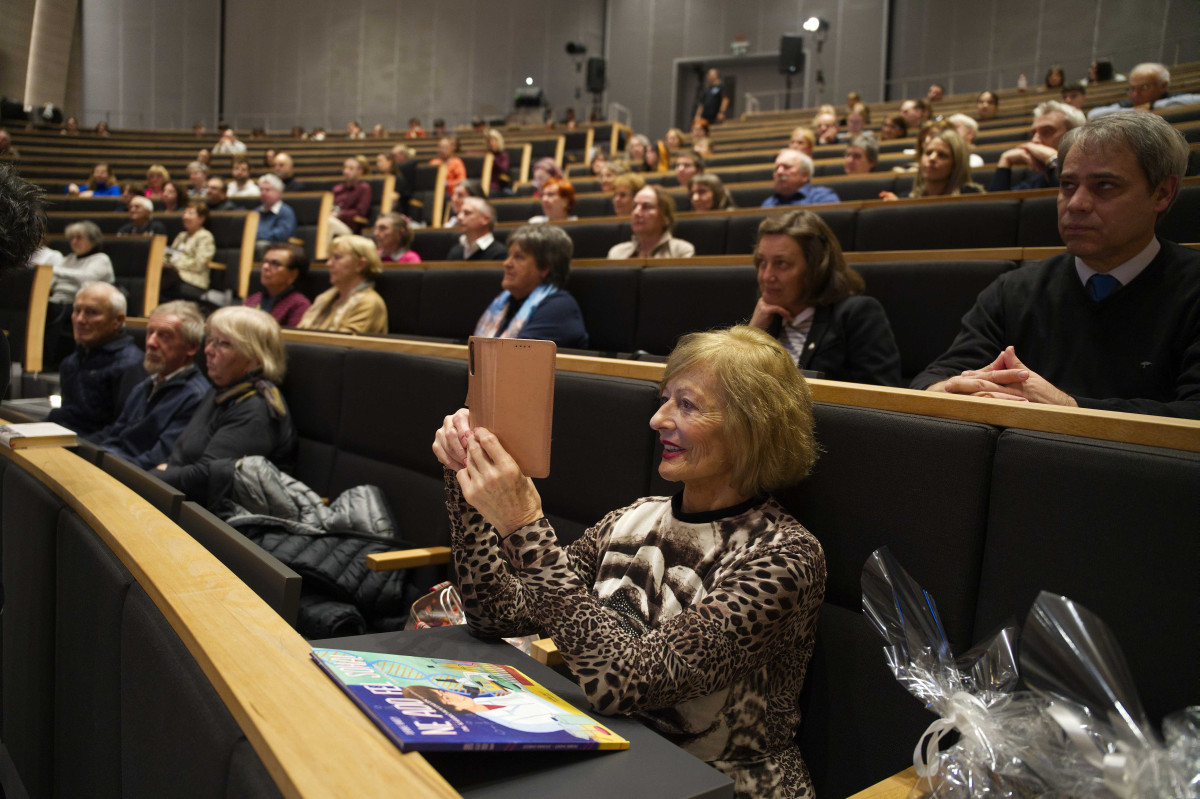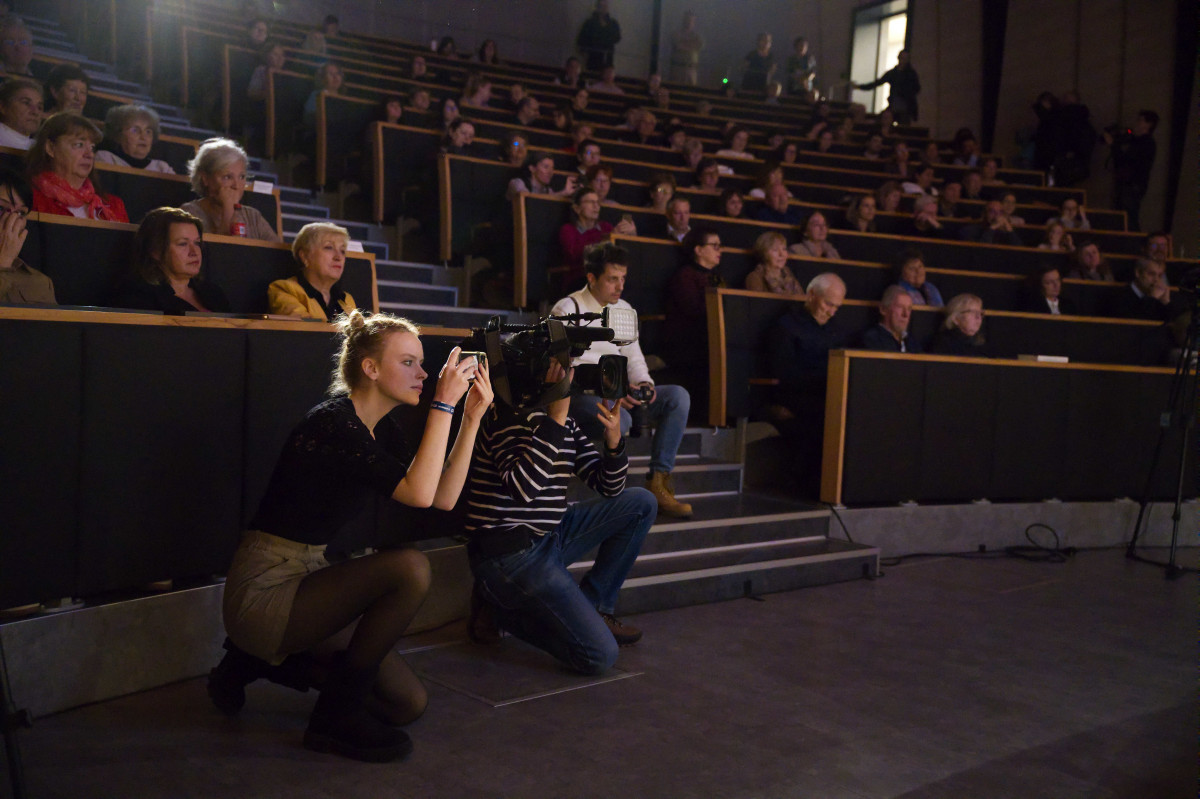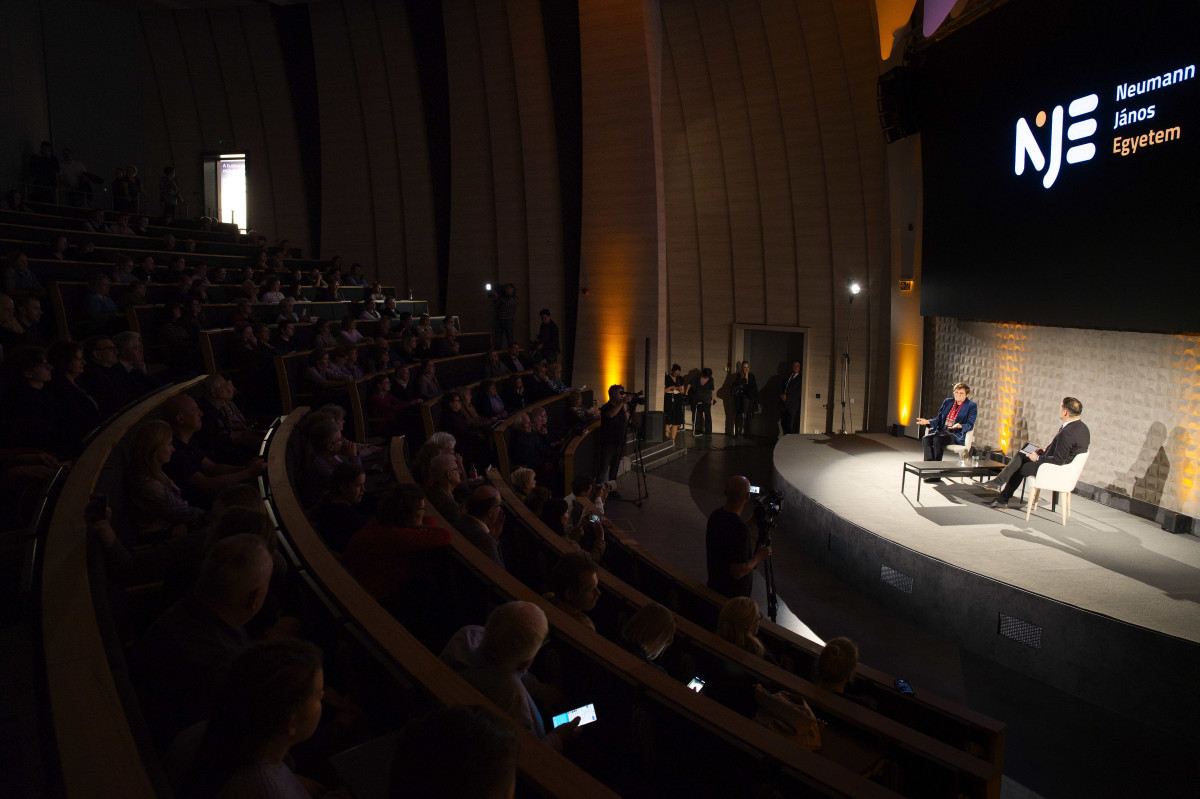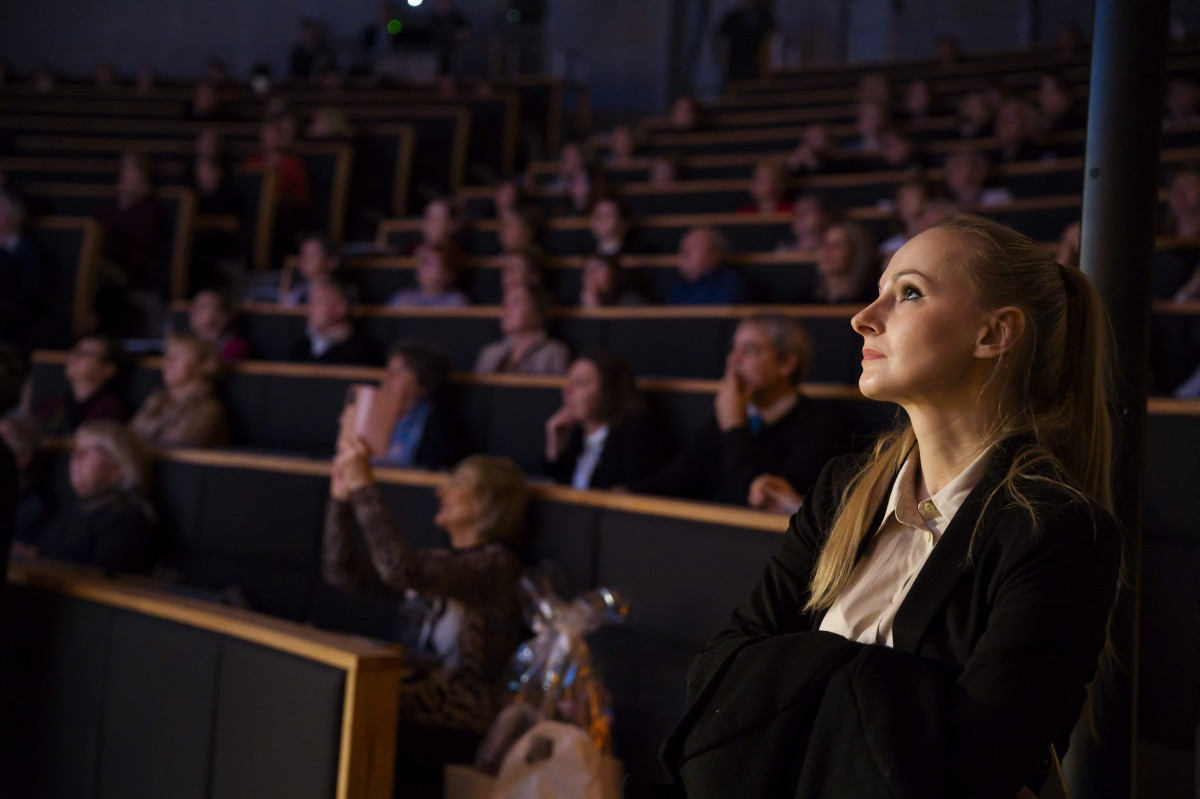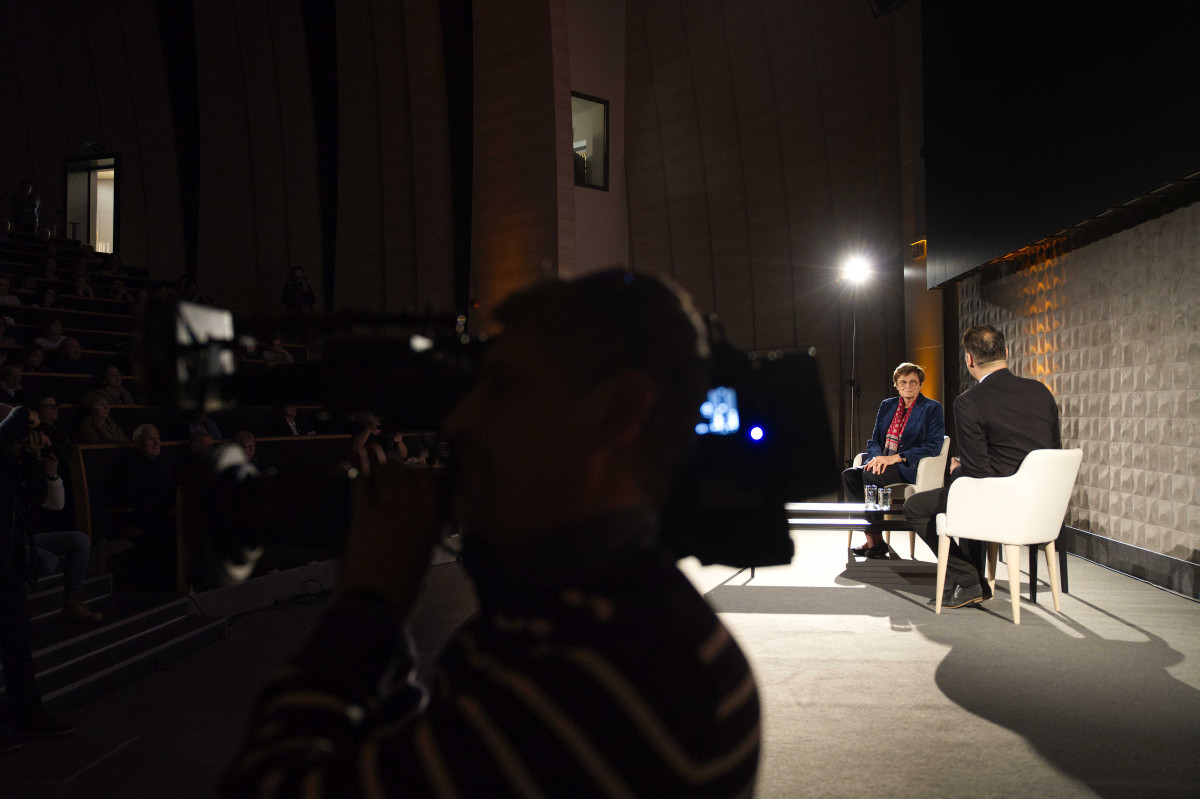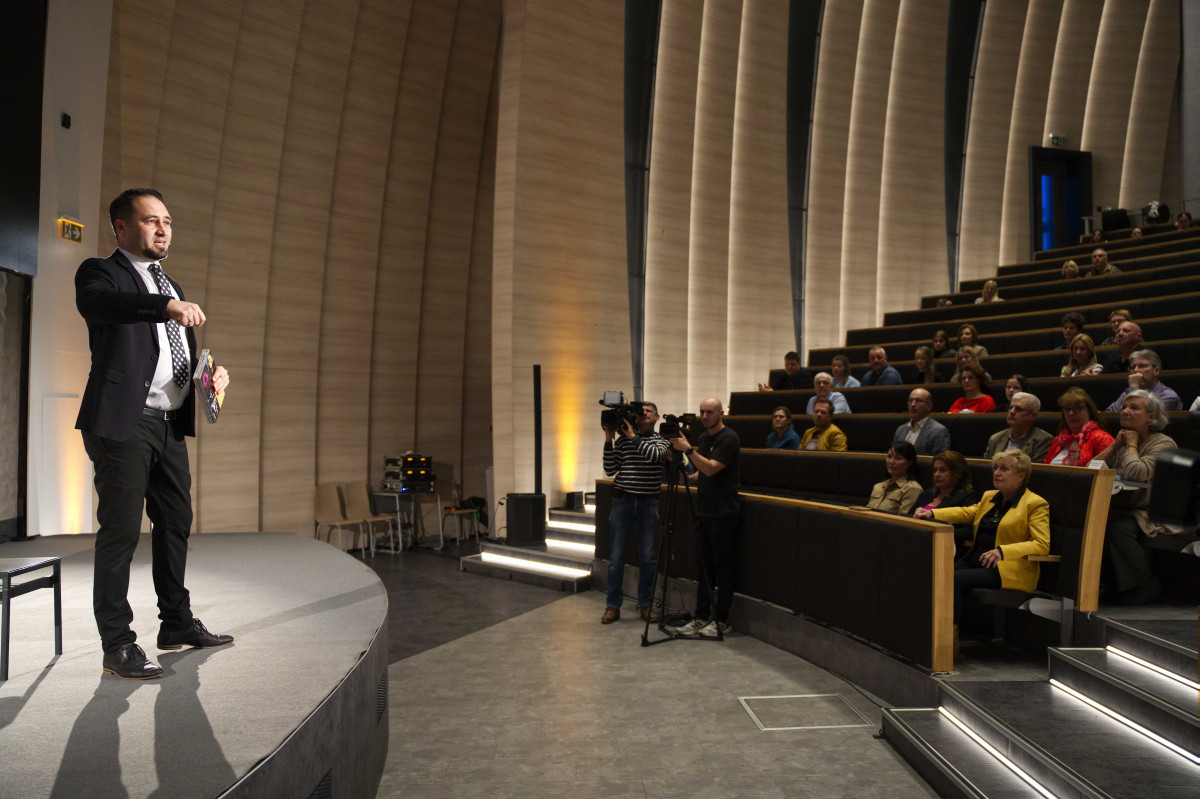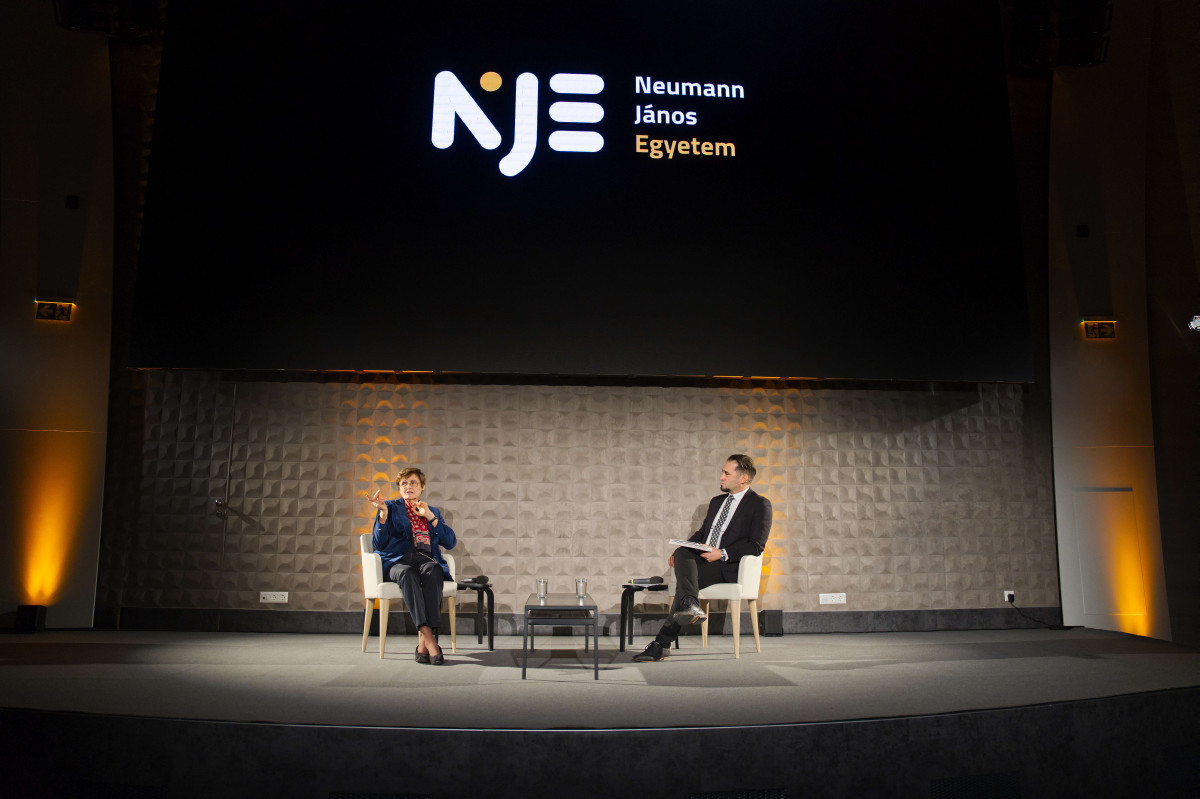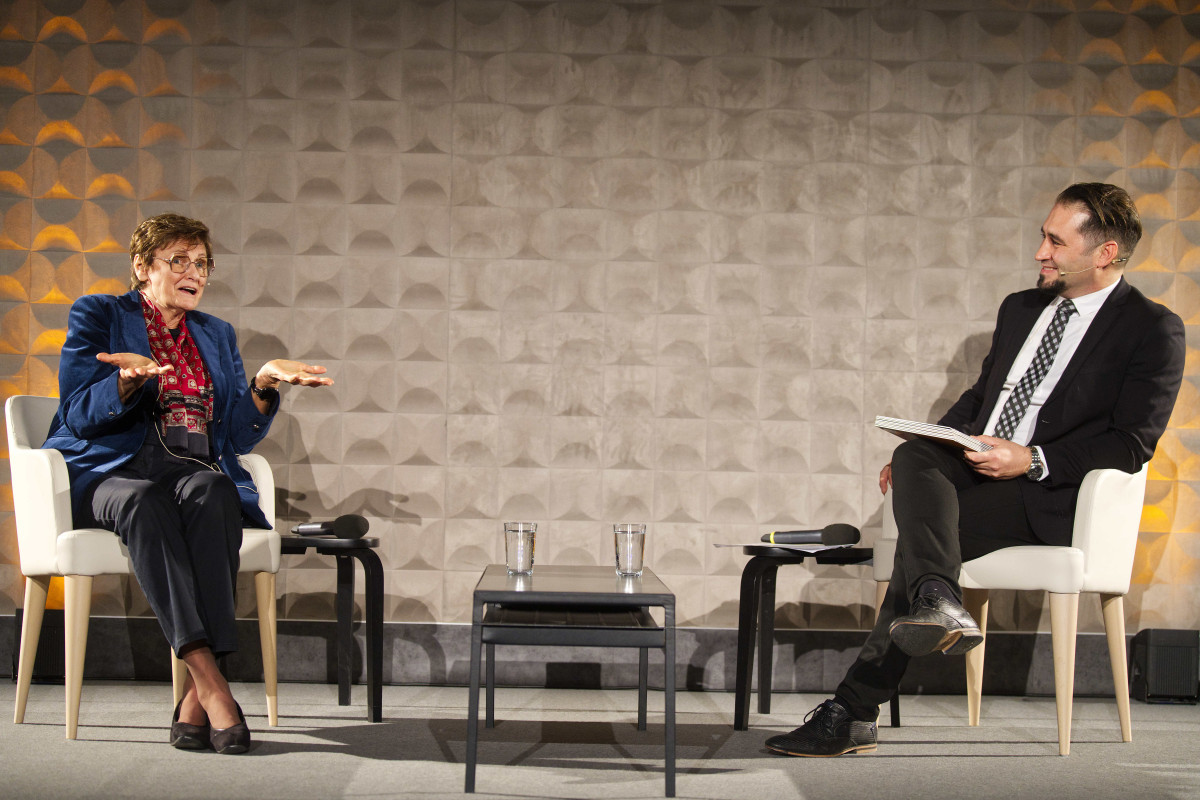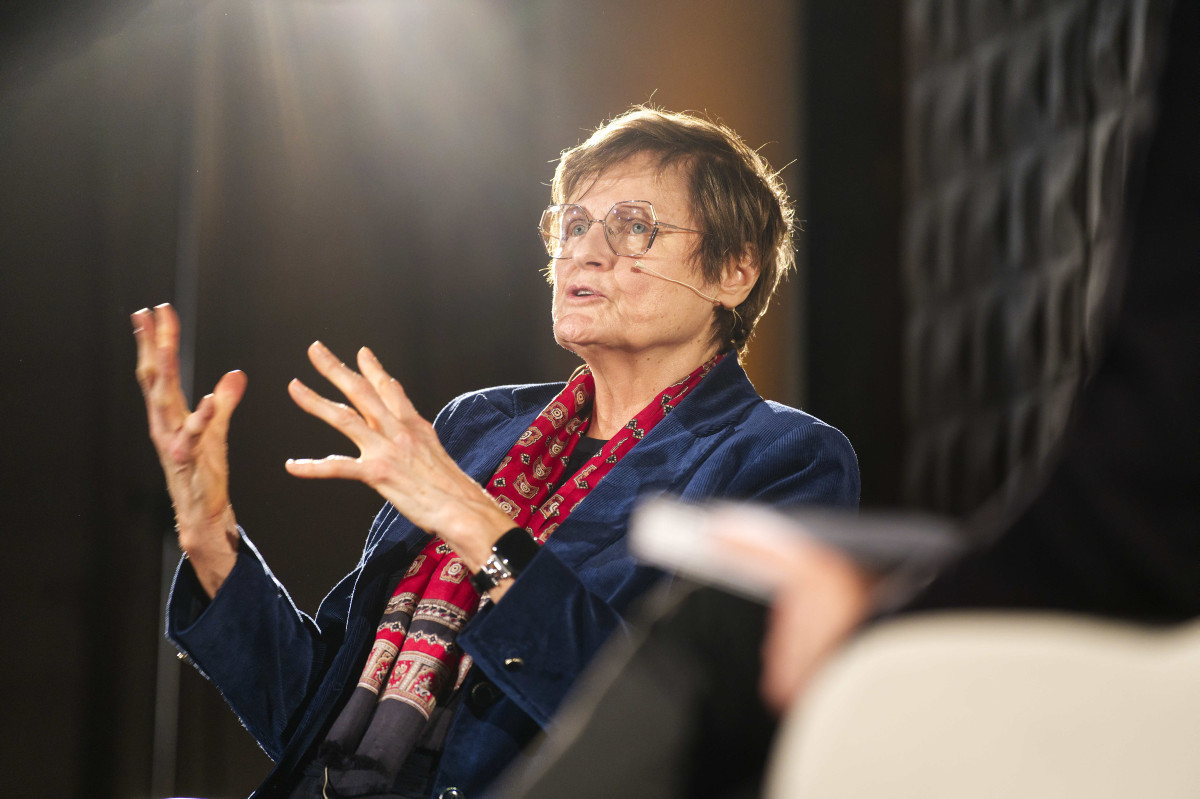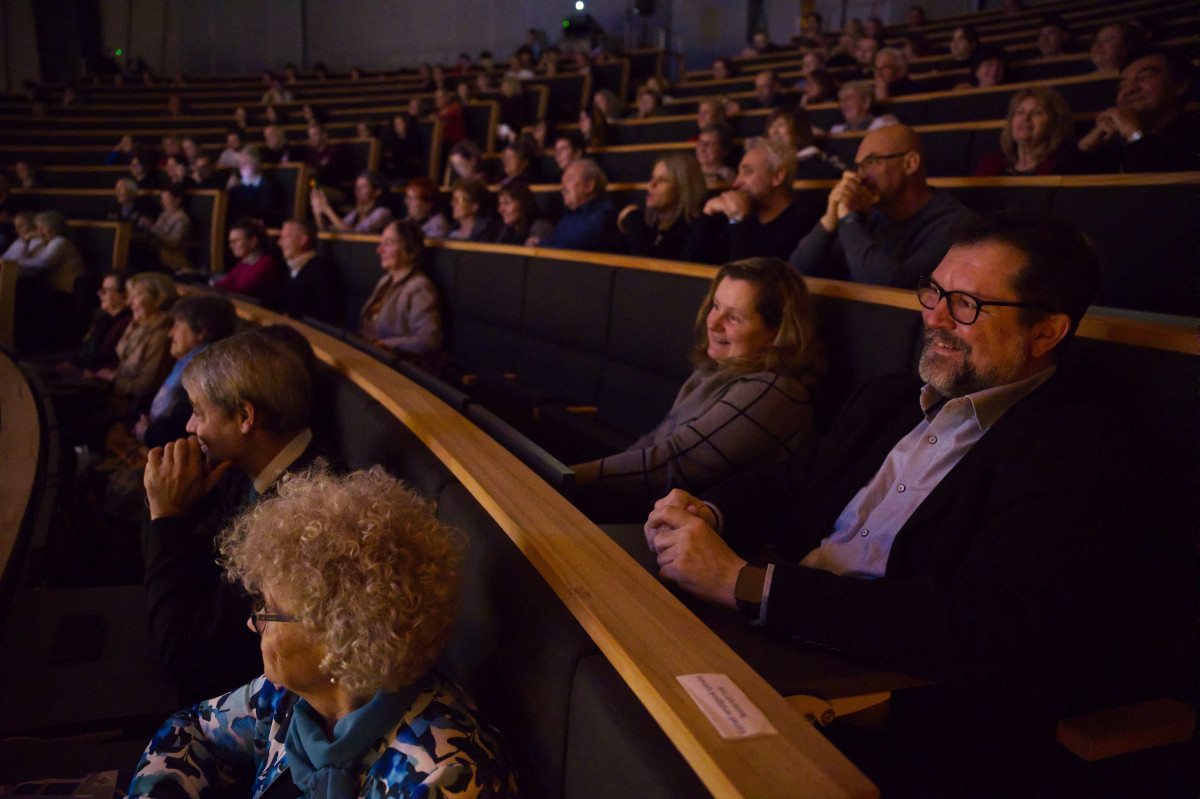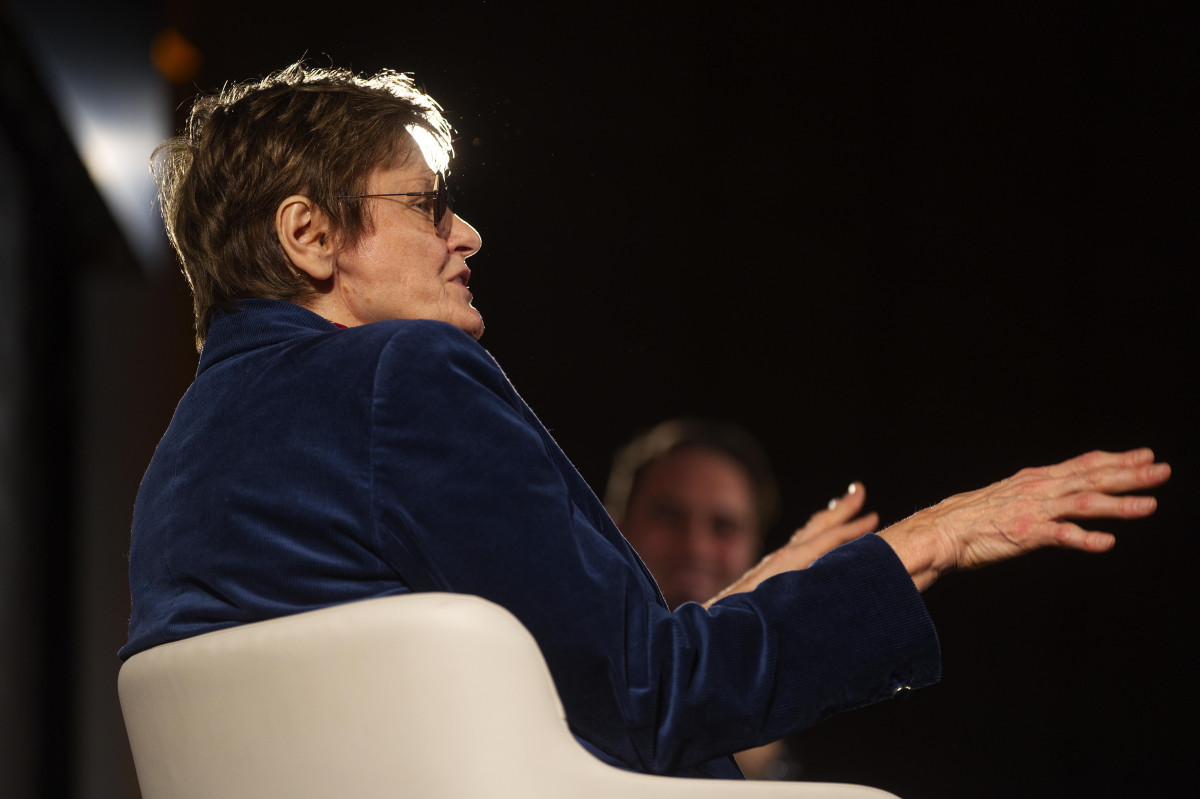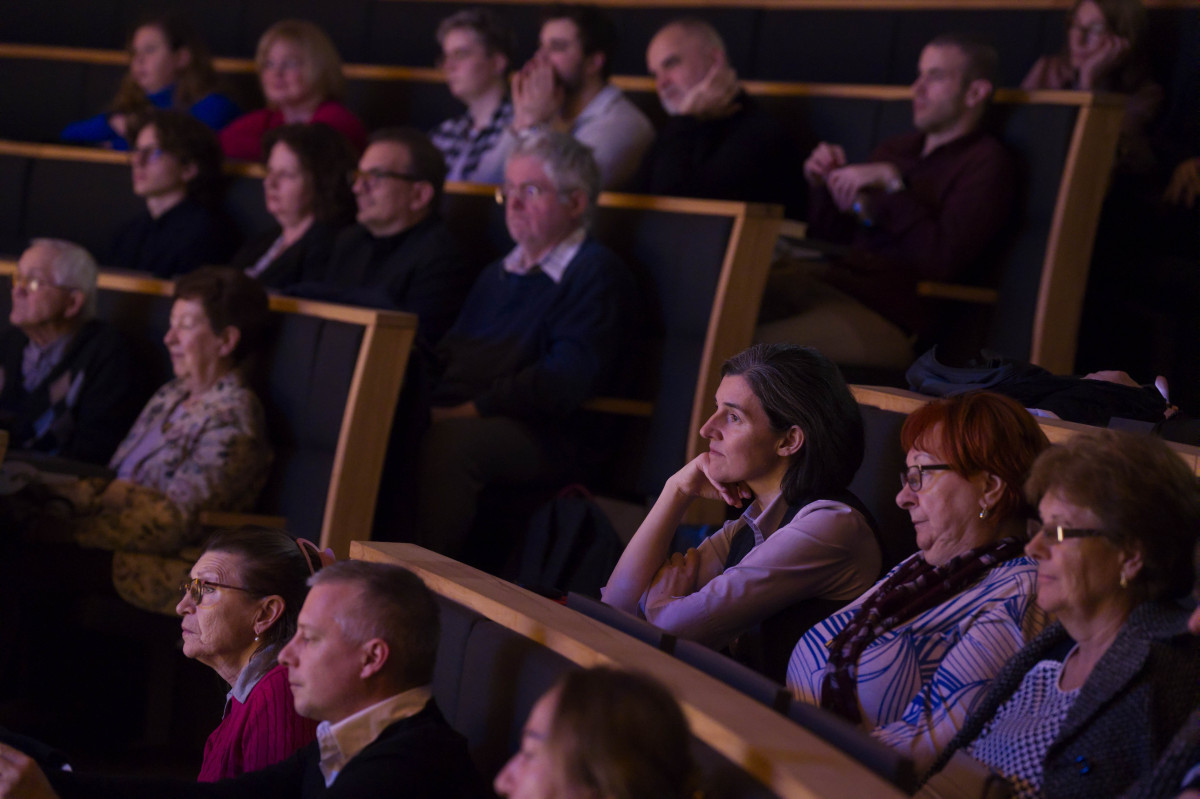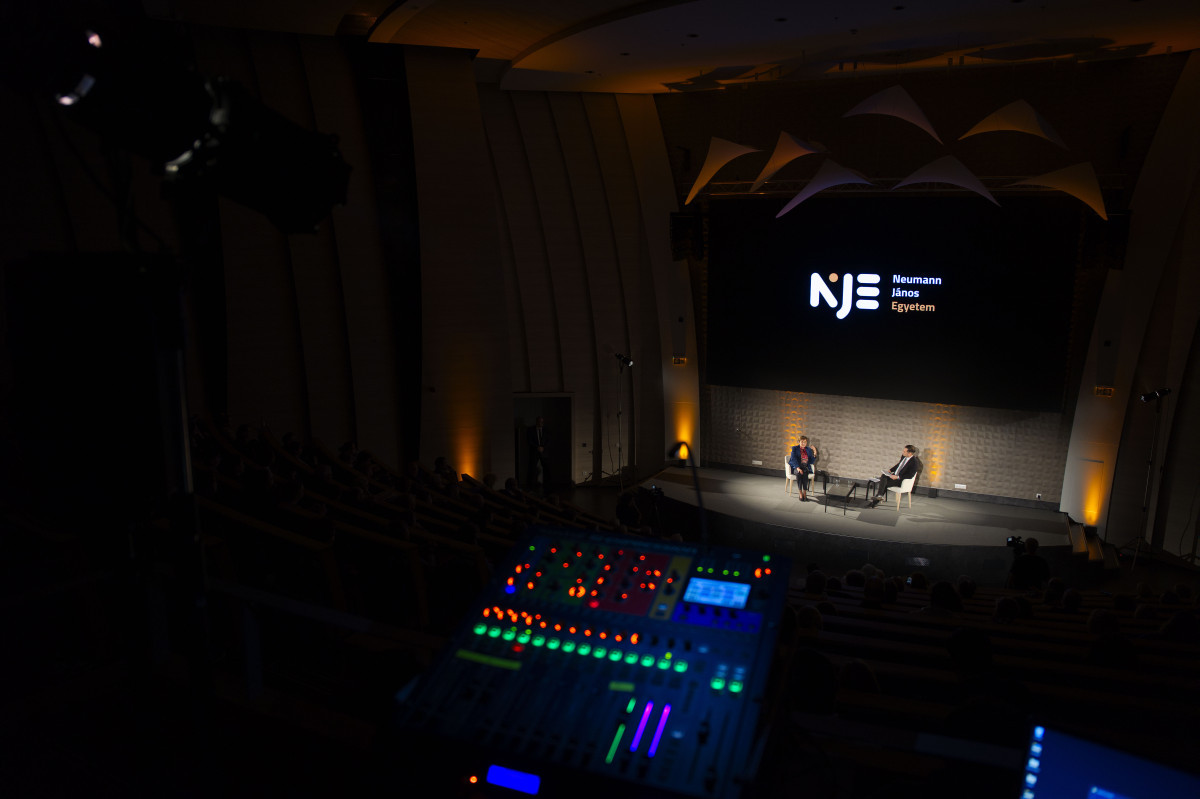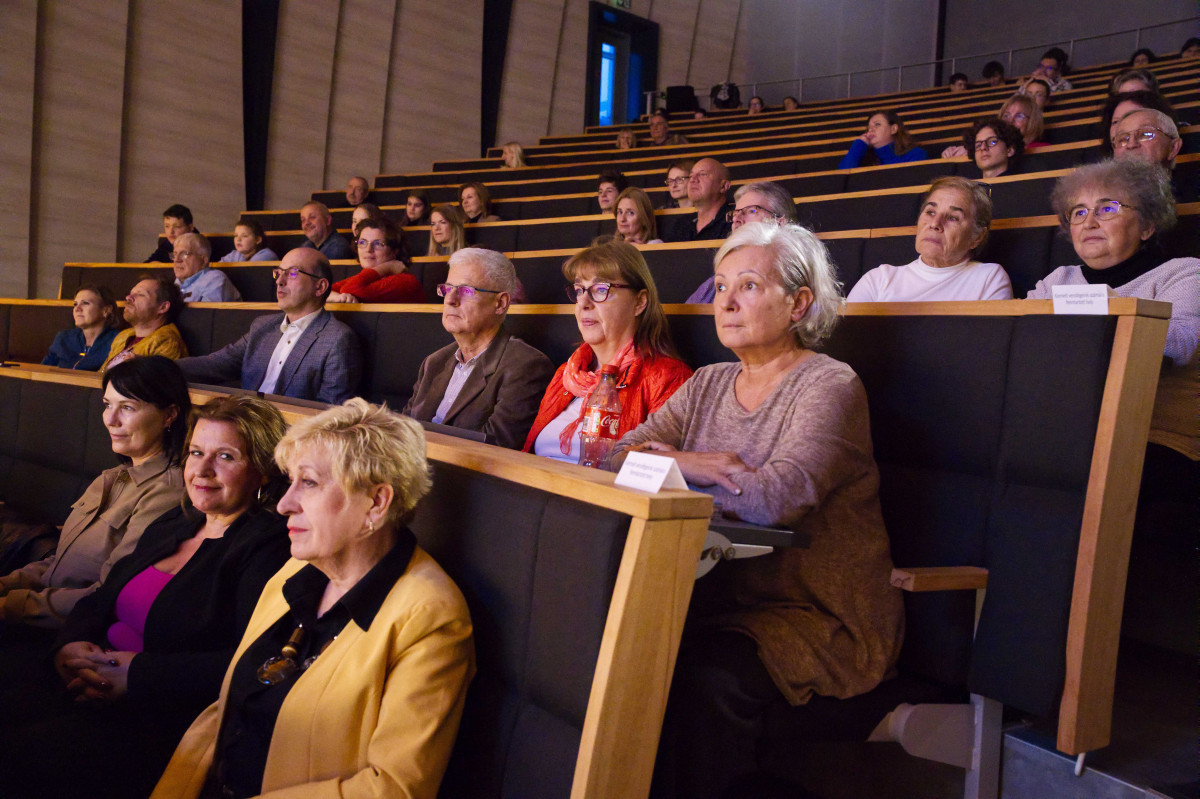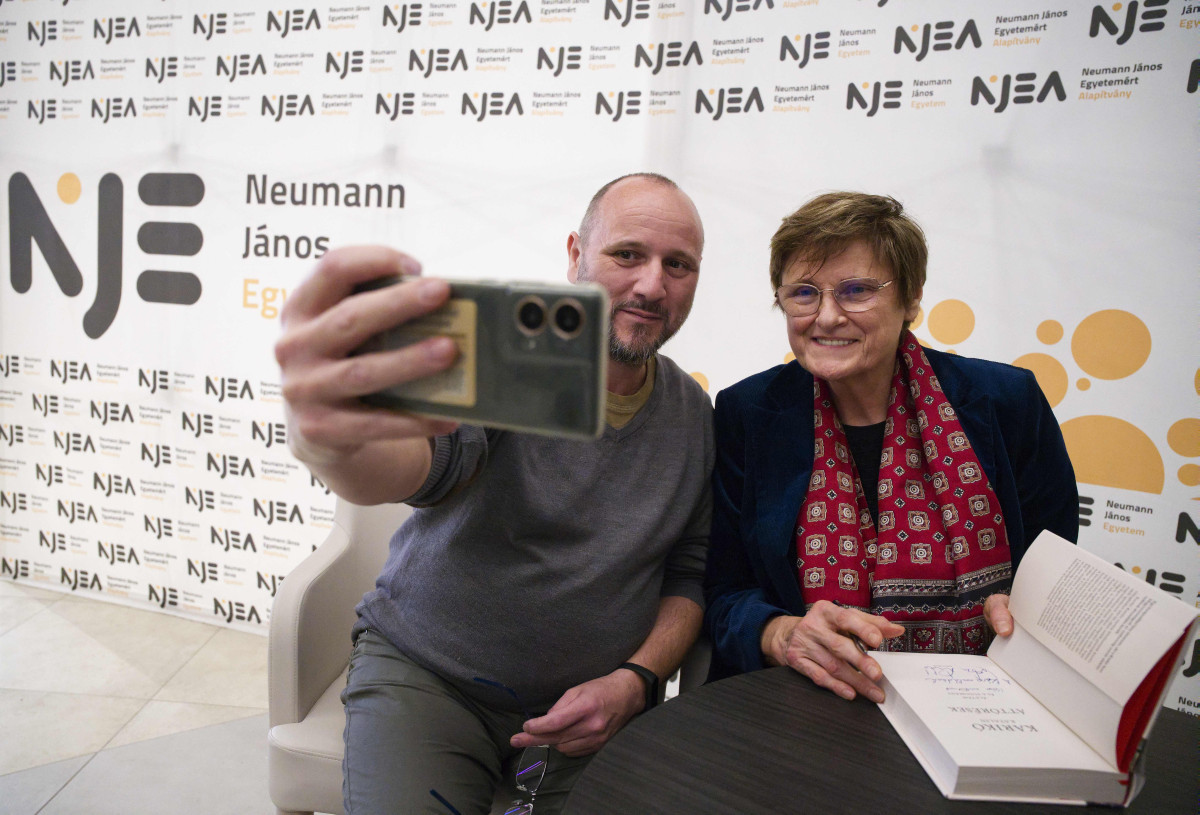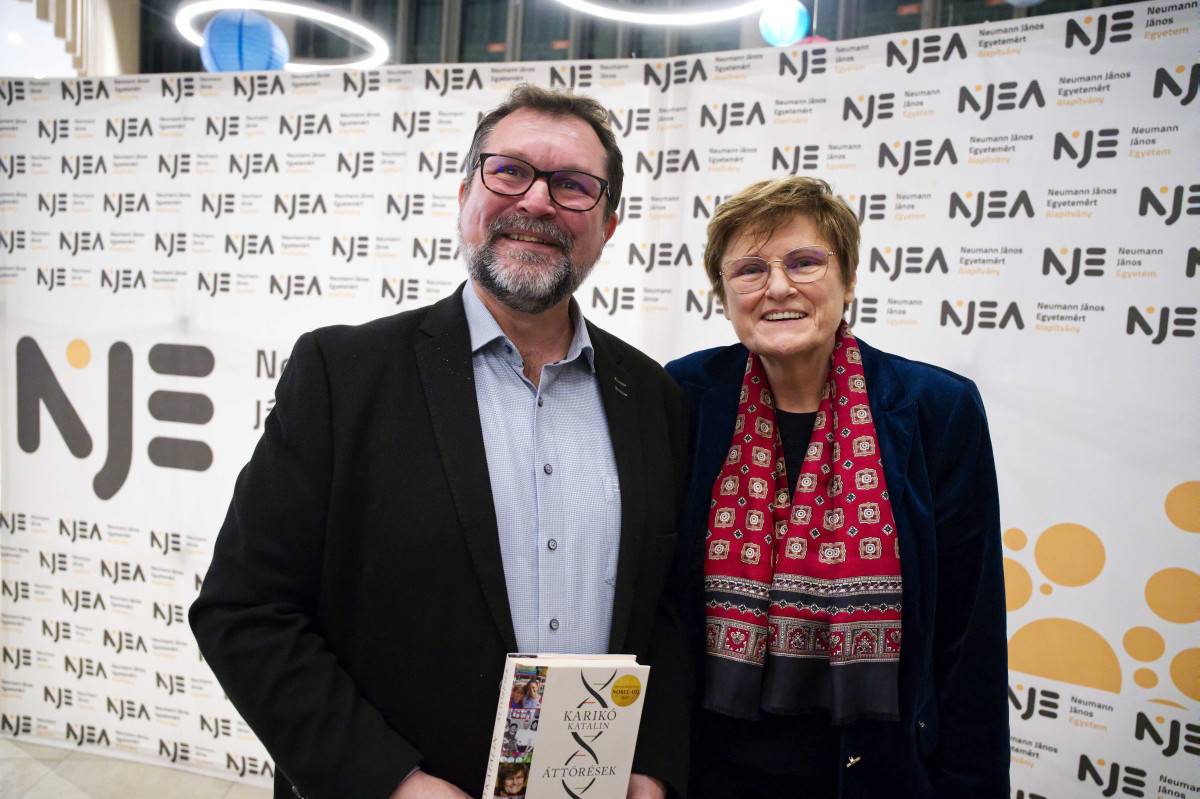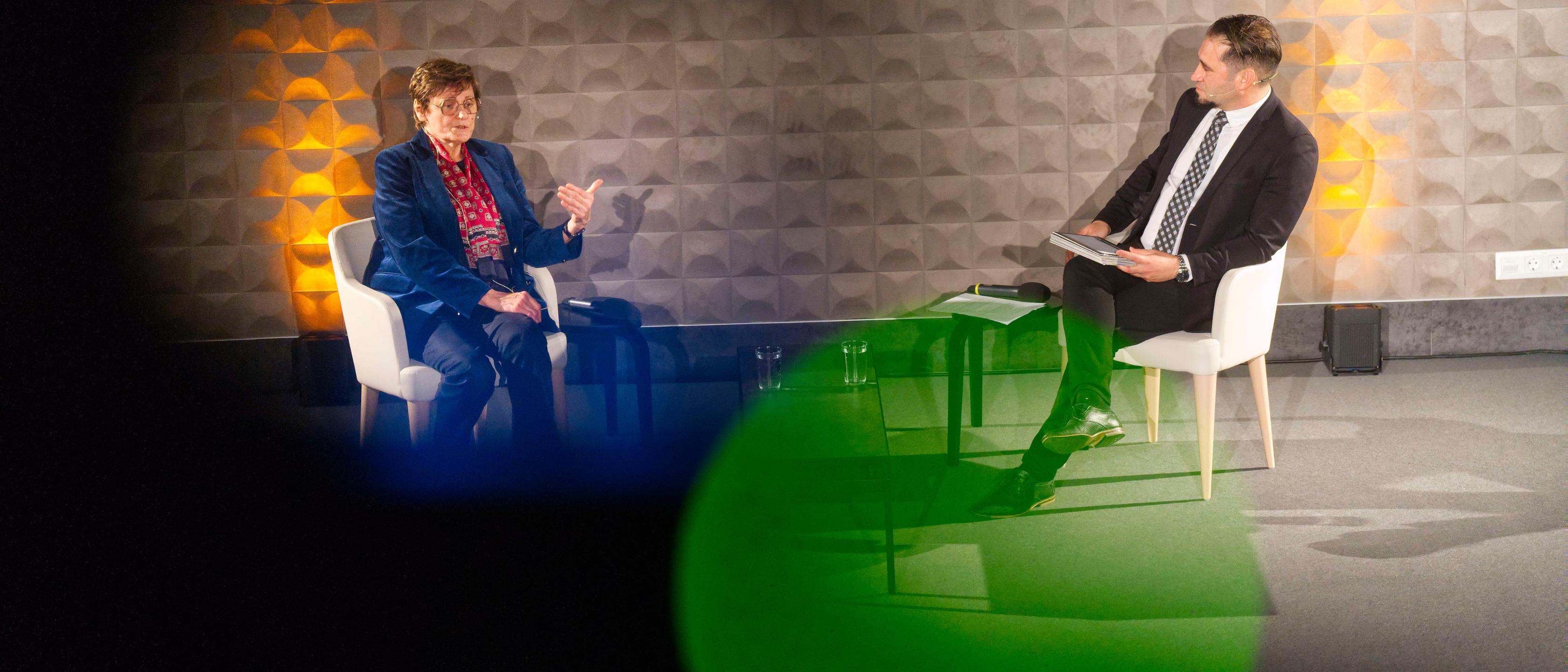
2025-11-18 08:33
An extraordinary guest visited John von Neumann University in Kecskemét on November 16, 2025: the world-renowned Nobel Laureate researcher, Katalin Karikó. The Nobel Prize-winning Hungarian biochemist, arrived in Kecskemét on Sunday afternoon with stories and a generous dose of humor. Before addressing the crowd in the main auditorium of the John von Neumann University, the world-famous scientist gave an interview in a separate room. Smiling, she discussed her career, then, with a swift gesture, pulled the Nobel Prize medal from her pocket.
.jpg?r=494747dda522d91cfa3fdb61259ef530)
"This would not be in my pocket if, at the age of 16, I hadn't read János Selye's book on how to handle stress," the researcher revealed.
Karikó then proceeded to the main auditorium, where she spoke to curious students about the scientific breakthrough she spearheaded, which laid the groundwork for the development of mRNA vaccines.
"Research is a very exciting thing and a way of life; it’s not merely a profession. You are constantly racking your brain over something: how to do this, how to do that. It’s a wonderful thing, but it’s not for everyone," Karikó said about her calling. The discussion was moderated by Zoltán Árvai, the communications director of the university's foundation, who questioned Karikó about both her scientific career and her personal life. The scientist shared, for instance, that she enjoys cooking, gardening, loves tripe stew ("pacal"), and is a big fan of detective series.
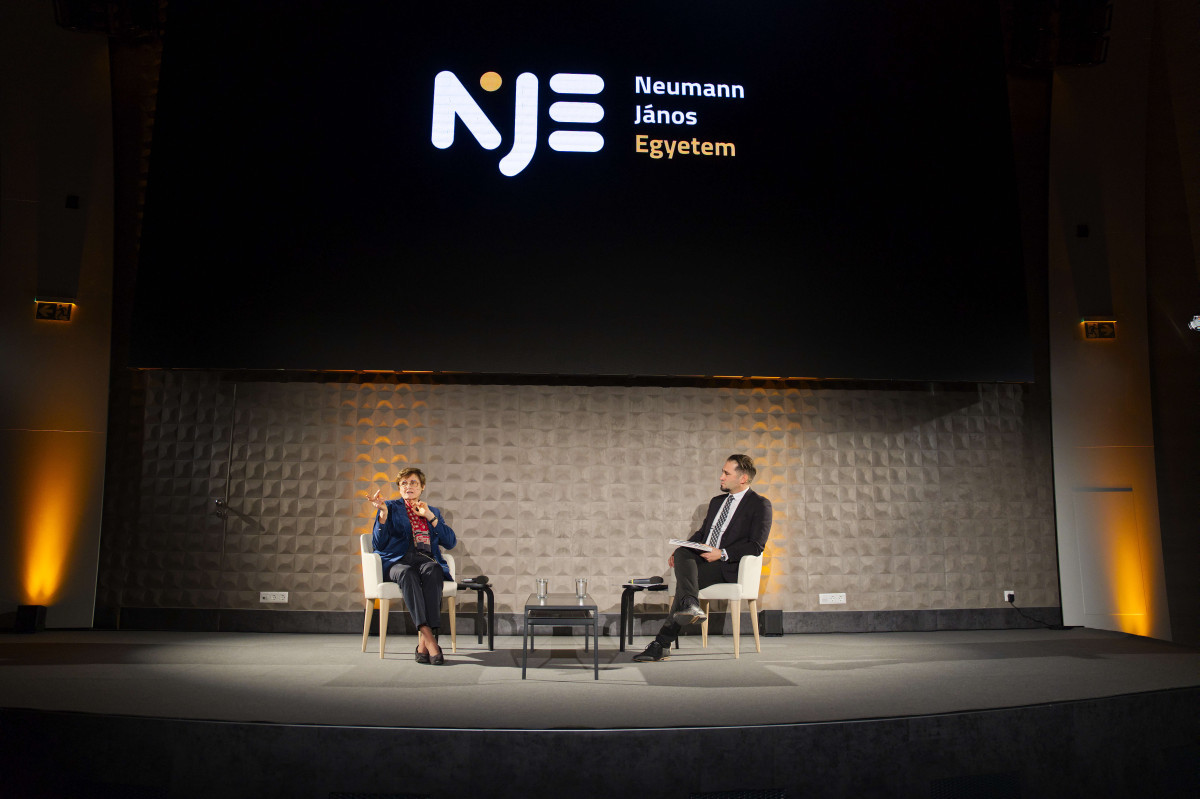
Following discussions about her everyday life, the conversation shifted to the challenges of her scientific path. Katalin Karikó explained that her career did not start smoothly. She was dismissed from her research position in Szeged precisely on her birthday, yet this period opened up opportunities abroad. She spent over twenty years in laboratories in Philadelphia, where she met her future research partner, Drew Weissman, with whom she established the foundations of mRNA technology. Ten years ago, after forced retirement—and encouraged by her husband—she relaunched her career in Germany, beginning the journey that led to the Nobel Prize in 2023.
"You can learn the most from failures, not from success. I felt that what I was doing was important, that it would eventually be useful, and when I was already performing experiments, I knew we would be able to apply it to cells - for example, we would be able to use messenger RNA therapy," the Nobel Laureate biochemist shared. This perspective ultimately led her to become the first Hungarian woman to be honored with the Nobel Prize. The event was attended by the university's leadership, as well as Engert Jakabné, Deputy Mayor of Kecskemét, and Imre Tóth, Director of the Kecskemét Reformed High School. The visit took place as part of a national program series celebrating the 200th anniversary of the Hungarian Academy of Sciences. The celebratory opening event for the Southern Great Plain region was held on November 4, and the university has contributed to the series in recent weeks with innovative award ceremonies, scientific lectures, and a special exhibition. The exhibition, titled "The Road to the Nobel Prize and Beyond," showcases Katalin Karikó's life journey, from her childhood room in Kisújszállás to receiving the world's most significant scientific recognition.
Source: www.hiros.hu
Photos: Róbert Banczik

